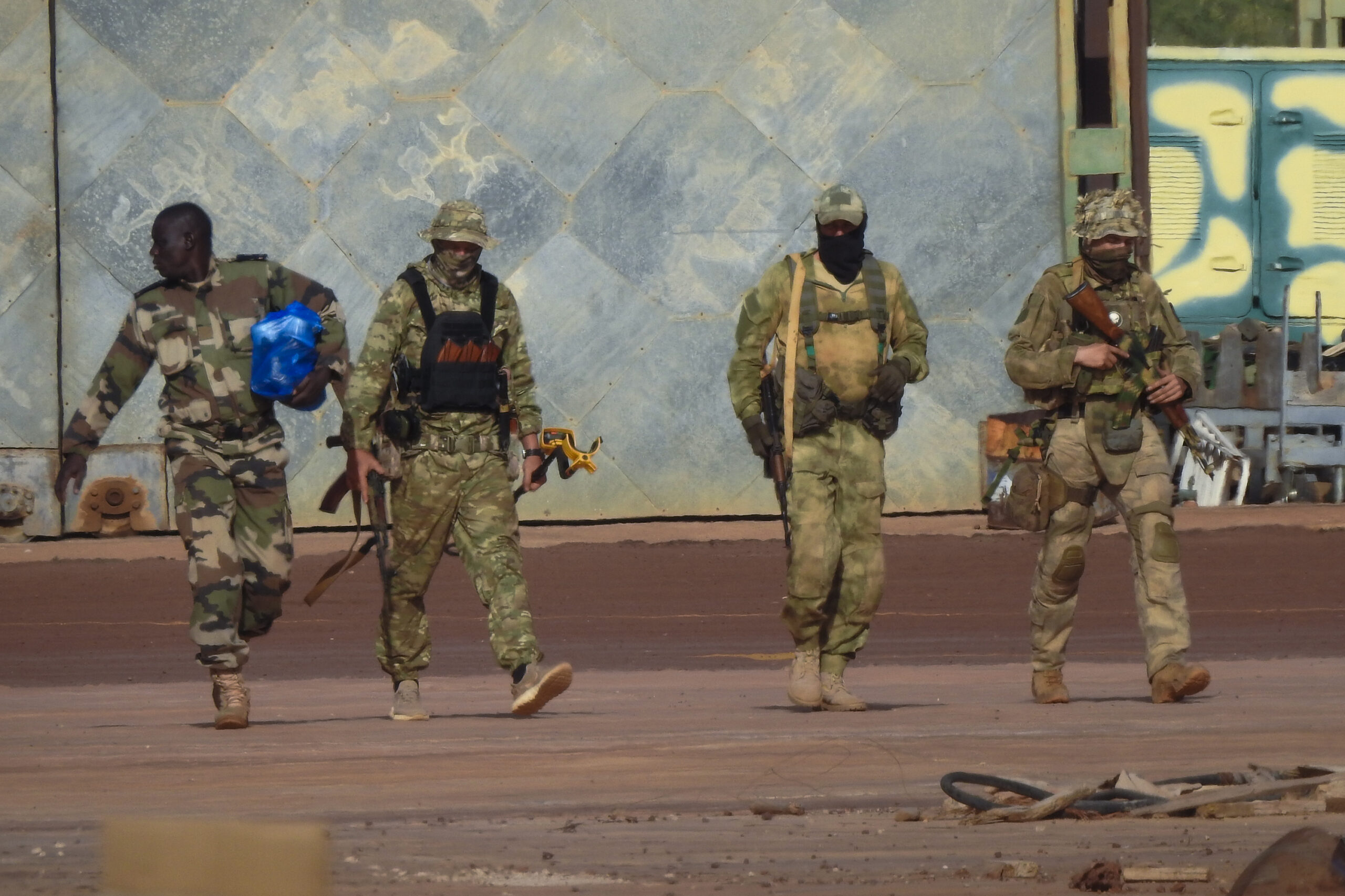Since mid-May, Tripoli, the capital of western Libya, has become a battleground for various factions supporting the UN-recognized Government of National Unity (GNU) led by Abdel Hamid Dbeibah. Paradoxically, the crisis was triggered by the prime minister’s attempt to consolidate power, a move urged by international actors. However, Dbeibah’s steps toward centralization were clumsy and lacked the finesse of backroom deal-making—essentially achieved through the killing of Abdel Ghani al-Kikli, who led the militarized «Stability Support Apparatus» in Tripoli. Following al-Kikli’s death—whether accidental or the result of a deliberate ambush—forces loyal to the GNU’s Ministry of Defense, primarily Mahmoud Hamza’s 444th Brigade, began seizing the Apparatus’s facilities in Tripoli’s districts. This led to armed clashes, public protests, and a new wave of political turbulence in a region where the official security apparatus of the internationally recognized government essentially consists of formations resembling private military companies, which periodically clash with one another.
Against this backdrop, another Libyan power center, represented by Khalifa Haftar and his family, began moving units of the Libyan National Army (LNA) closer to western territory—from Benghazi to Sirte. Given Haftar’s past tactics of exploiting divisions among western Libyan forces through pressure, renewed attempts by the LNA to avenge its 2020 defeat are not unlikely.
However, external forces play a significant role in stabilizing the situation—Turkey, which previously saved Tripoli from LNA capture, and Russia, which has unofficially established a presence at nearly all eastern Libyan military sites. For Moscow, still struggling to maintain a semblance of influence in post-Assad Syria, new attempts by Haftar to seize full control of Libya could have severe consequences, potentially undermining the already faltering «African Corps» projects across the continent. Yet, even without a new military adventure by Haftar, Moscow’s medium-term presence in Libya lacks clear prospects.
Volatile Perspectives
Over the past decade, Russia’s stance on Libya’s internal power dynamics has shifted repeatedly: Moscow has at times openly aligned with Khalifa Haftar, only to later balance this tilt by intensifying contacts with Tripoli’s authorities. This zigzag foreign policy trajectory was tied to battlefield successes and failures in Libya, where, after the LNA’s failed Wagner-backed offensive on Tripoli, the Kremlin hurriedly adjusted its actions to favor the internationally recognized authorities. Additionally, internal divisions within Russia’s elite—the Foreign Ministry advocated dialogue with Tripoli, while the Defense Ministry backed Haftar, and the Kremlin’s «towers» lacked consensus—created further policy fluctuations.
Among Russian military experts, it is believed that the infamous conflict between Yevgeny Prigozhin and then-Defense Minister Sergei Shoigu first escalated due to Libyan events. Initially, Prigozhin’s «trolls,» followed by sociologists, political strategists, and mercenary fighters, bolstered the positions of regular Russian forces in eastern Libya. However, the «tail soon began wagging the dog,» demanding recognition of Wagner’s «hard» and «soft» power experience on the ground.
This conflict generated a wealth of information, but Wagner’s story in Libya ended in a lesser-known way. In September 2023, after Prigozhin’s elimination, Russian mercenaries at Libyan bases threatened to strike nearby Russian Defense Ministry facilities if the military did not urgently allow a Wagner-operated transport plane—carrying over 100 of Bashar Assad’s security personnel from a «Libyan assignment”—to land in Syria. This was likely the final straw, after which Wagner mercenaries were fully withdrawn from Syria and Libya, replaced by the Defense Ministry’s fully controlled «African Corps.»
Following the fall of the Assad regime and the reduction of Russia’s presence in Syria (with the Tartus and Hmeimim bases effectively demilitarized), Libyan facilities have become a key stronghold for projecting Kremlin influence in Africa and the Middle East. The supply and rotation of the «African Corps» in West Africa (primarily Burkina Faso, Niger, and Mali) cannot logistically occur without relying on facilities in Haftar’s domain.
Haftar’s visit to Moscow in May 2025 was likely intended to officially mark a new phase in the Kremlin’s Libyan policy. Despite the LNA’s questionable legitimacy, Haftar observed the Victory Day parade alongside other countries’ presidents (though some, like Burkina Faso’s Ibrahim Traore, came to power through coups). Prior to this, Haftar held talks with Shoigu, now Security Council Secretary, surrounded by military intelligence (GRU) leadership. On May 10, Haftar was received by Vladimir Putin in the Kremlin and later—likely after receiving assurances from the president—by the current Defense Minister, Andrei Belousov.
Yet, Moscow’s position remains ambiguous: Russia’s embassy in Libya is located only in Tripoli, and the Foreign Ministry has consistently obstructed the opening of a consulate in Benghazi, despite the significant presence of Russian military personnel in eastern Libya.
The escalation in Tripoli amid eastern stability could push Moscow toward clearer support for Haftar. However, this is unlikely, as Moscow, despite its investments in Haftar, is well aware of the «ticking time bomb» in eastern Libya—one it cannot defuse even if it wished: 81-year-old Haftar faces health issues, and the transition of power to his sons could follow an unpredictable path.
Nepotism in Governance
Concerned about the impending power transition, Khalifa Haftar has long sought to delegate authority to his sons, primarily Saddam and Khaled.
Saddam Haftar is considered the primary contender to lead the LNA and the «eastern empire» as a whole. From 2016 to 2024, he rose from cadet to head of the LNA’s ground forces. Initially, Saddam commanded the Tariq bin Ziyad Brigade, still regarded as one of the LNA’s most combat-ready units. However, international human rights groups have repeatedly accused the brigade of crimes against civilians. As head of the ground forces, Saddam controls other capable units—battalions and brigades that are well-equipped and trained by local standards. The Tariq bin Ziyad Brigade primarily consists of Madkhali Salafists, which makes Haftar’s claims of fighting «takfirists» absurd and undermines the Russian Defense Ministry’s media campaign, built on supporting regimes purportedly combating «Islamists.»
Another of Haftar’s sons, Khaled, was appointed in 2024 to lead the LNA’s security units, centered around the 106th Brigade, which also relies on various Salafist groups. The distribution of military power between the two brothers (Haftar’s other children have lesser political ambitions for various reasons) allows the Haftar family to control eastern Libya but creates risks: it remains unclear how Saddam and Khaled will act in the event of their father’s death or incapacitation.
The situation is complicated by the stance of southern tribes, with whom Haftar has always managed to find common ground in tough times. For them, Saif al-Islam, Muammar Gaddafi’s reclusive son, would be preferable to Haftar’s sons. While Libyans are weary of civil wars—a factor that could be significant during a power transition—the issue of resource distribution may outweigh the desire for swift stabilization.
The central issue, however, is consensus within the Haftar family. In Libya and among leading experts, there is a prevailing view that Haftar’s current display of family harmony is a facade, with serious competition between the brothers in reality. Moreover, it is uncertain whether Saddam, in the event of his father’s withdrawal, could convince loyal brigades and battalions to remain faithful. The LNA’s ongoing purge, which in 2024 alone led to the dismissal of nearly 3,000 officers and generals, is unlikely to pass without consequences during a power transition. Among the younger generation that has rapidly advanced in recent years, some may be dissatisfied and tied to the «old guard,» sidelined not only from power but also from income sources.
Experts are well aware of the shadow economy in eastern Libya, where oil smuggling intertwines with drug and human trafficking, with proceeds laundered through construction projects managed by two key funds: the National Development Agency, overseen by Saddam, and the Libyan Development and Reconstruction Fund, headed by another son, Belkasem.
The current security equation in eastern Libya relies on extensive international ties maintained by Saddam and Khaled—with allies like Russia, Egypt, Saudi Arabia, and the UAE, as well as adversaries like Turkey, the US, Israel, and others. Turkey’s role in modern Libya is particularly paradoxical: a few years ago, Ankara was the Haftar family’s main opponent, contributing to the LNA’s military failure to control the entire country, but now Turkish construction companies are involved in numerous infrastructure projects in the east.
There are reasons to believe that Saddam and Khaled are seeking support from different players: the former from NATO countries, the latter primarily from Russia and Belarus. Rumors suggest that the secrecy surrounding construction at the Maaten as-Sarra airbase, conducted for the «African Corps,» is tied to Khaled’s efforts to demonstrate his ability to provide Russia with a key logistical hub for transferring goods and personnel to Burkina Faso, Mali, Niger, and Sudan, even in a region tightly controlled by Saddam. If this power dynamic is accurate, the prospects of the «African Corps”—a project meant to replace Wagner’s remnants in the region under GRU control—may be in jeopardy and heavily dependent on whether the Haftar family can reach any consensus. Even if a consensus is achieved, the external actors it relies on will matter greatly.
Moscow would prefer that the competition between Haftar’s sons is a tactical game of «good cop, bad cop,» aimed at securing concessions from all sides and demonstrating the Haftar family’s indispensability, if not for the entire country, then at least for its eastern half. However, the Kremlin likely dismissed expert warnings that Assad’s victory in the Syrian civil war was an illusion and his regime’s collapse was almost inevitable. The consequences of that miscalculation are well known.









